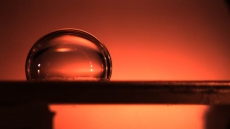Online video games and remote experiments can combat the rising level of errors and fraud in life sciences research, says a new study co-authored by an Indian-origin researcher.
"Online game-like approach are more scientifically rigorous than the standard practice of scientists proposing an explanation for some phenomenon and then testing that hypothesis through experimentation," explained Rhiju Das, assistant professor of biochemistry from the Stanford University.
"Massive online laboratories today use videogames to engage large numbers of non-professional investigators and prevent scientists from manually testing their own hypotheses," Das noted.
Reporting on the success of their own online lab, Das and assistant professor Adrien Treuille from Carnegie Mellon University wrote about a RNA-design project called EteRNA, which has produced unprecedented design insights that have advanced knowledge of RNA (ribonucleic acid).
"We registered more than 150,000 participants who contributed in excess of two million human-hours to EteRNA. That means there were a lot of eyes, a lot of people looking over each other's shoulders as hypotheses were developed and experimental results evaluated. Everything is out in the open," Treuille explained.
If you strip the game part, projects such as EteRNA present a fundamentally new model of remote science that can prevent many common forms of scientific fraud, Das commented.
Online participants use computer design tools to propose RNA designs that meet certain criteria.
The designs are then synthesized in the Stanford lab of Das.
The results are made available to the entire EteRNA community for analysis and use in future design challenges.
The transparency makes it difficult for any individual to retrospectively adjust scientific hypotheses to match experimental results, or to cherry-pick data to reflect a scientist's biases.
The paper was published in the journal Trends in Biochemical Sciences.





